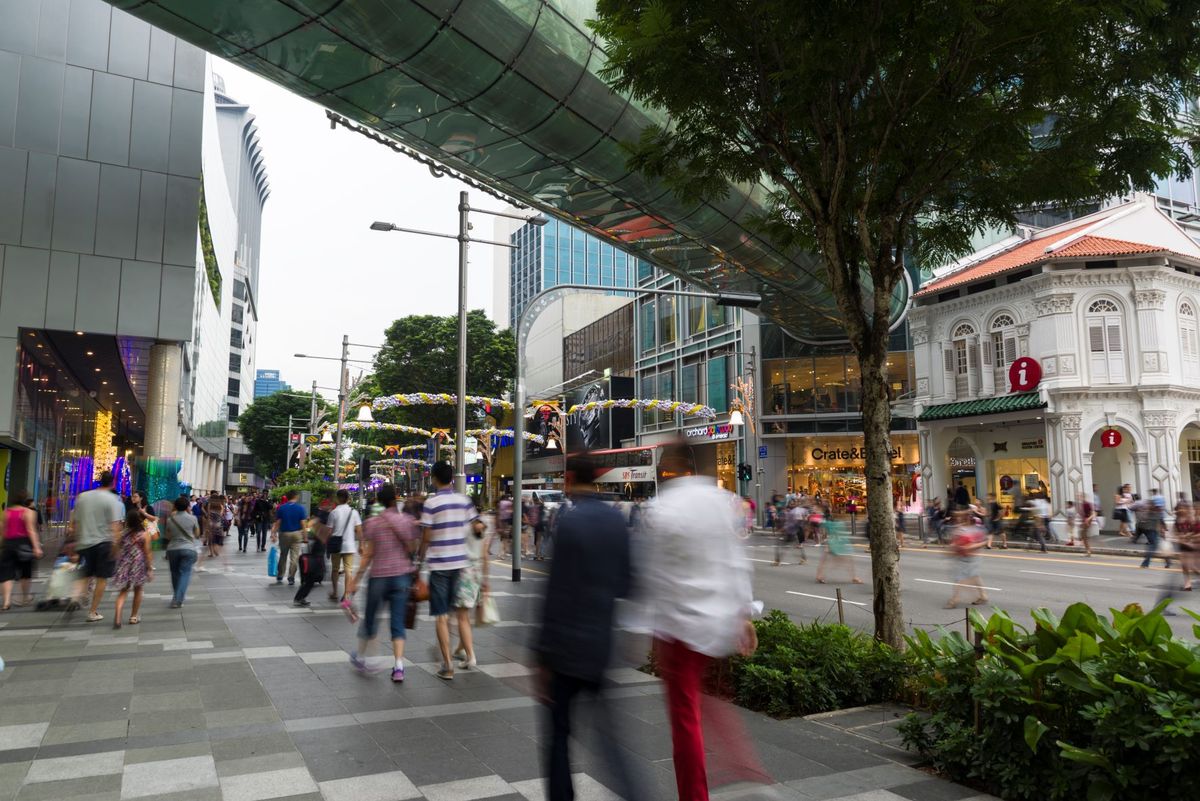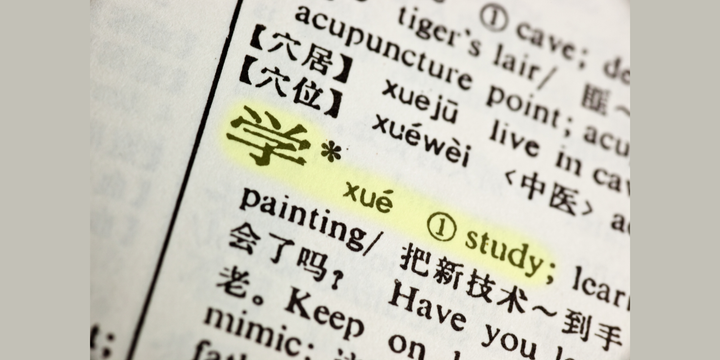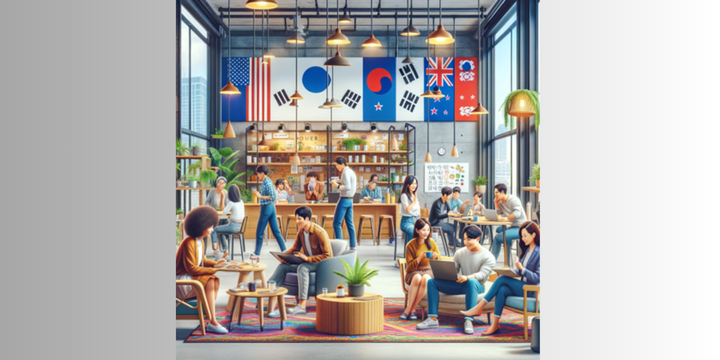Working Towards Our Sustainable and Equitable Future in the Asia-Pacific
The Centres of Asia-Pacific Excellence assembled three leading academics and three tertiary students to talk about sustainability leadership, science and action from an Asia-Pacific perspective.

“This upcoming decade has been declared by many experts as the most decisive period for humankind, [because] if we do not make decisive changes within the next ten years to the way we treat our environment and how we run our economies, then we will be faced with irreversible changes to our climate and our natural resources.” - Katja Neef
Two voices should count for a lot in the quest for decisive climate action and sustainable, inclusive and equitable growth: the academics who give us the evidence to act, and the youth who are our motivation for a better future. To bring these voices together, the Centres of Asia-Pacific Excellence assembled three leading academics and three tertiary students to talk about leadership, science and action from an Asia-Pacific perspective.
Several insights from this discussion are captured in this short report:
-
Youth in Aotearoa are looking for leadership that prioritizes immediate action and which includes indigenous viewpoints to ensure solutions that support climate-vulnerable populations across the Asia-Pacific
-
New Zealand needs to rethink its urban environment and not just focus on agricultural emissions. Examples of innovative and adaptative urban design can be found across the Asia-Pacific, for example in Singapore.
-
Similar climate challenges and shared goals across the Asia-Pacific reinforce the potential for Asia-Pacific collaboration to find innovative solutions.
-
Positive communication and story-telling, for example via the arts, can help push beyond hesitancy and motivate change and action.
Watch the full webinar
You can watch the full webinar (1hr 30min) or read the short report below.
About the Working Towards Our Sustainable and Equitable Future in the Asia-Pacific webinar
The Centres of Asia-Pacific Excellence organised the webinar in support of the APEC Voices of the Future project.
The CAPEs extends their deep appreciation to the Webinar speakers:
Academics
Professor Chellie Spiller (Ngāti Kahungunu, Ngāti Pākehā), University of Waikato
Dr Negin Imani, Otago Polytechnic
Professor James Renwick, Te Herenga Waka–Victoria University of Wellington
Students
Claire Allen, University of Otago
Katja Neef, University of Auckland
Madison Seymour, University of Otago
Moderator
Stephanie Honey, Associate Director of the New Zealand International Business Forum, and policy advisor to the New Zealand members of the APEC Business Advisory Council.
Webinar report
Leadership wish-list: decisive and indigenous
Professor Chellie Spiller (Ngāti Kahungunu, Ngāti Pākehā),
University of Waikato, and student Katja Neef, University of Auckland, discussed how we in Aotearoa might think about creating a more equitable and inclusive model of development, including through youth and indigenous leadership.
In this most decisive decade, New Zealand’s youth are looking for leadership that prioritizes immediate action over safer but less effective policy decisions, according to Katja Neef. She also emphasized the importance of indigenous leadership.
“The effects of climate change will disproportionately impact structurally oppressed and more vulnerable groups of people. Those who might suffer the most would not have as much power in shaping such policies that will affect them the most.” - Katja Neef
Professor Spiller applauded the vital rise of youth activism and indigenous voices. Yet as this is a long and difficult journey, she emphasised the need for youth to take care of their wellbeing mentally, spiritually, and emotionally.
Neef hoped that New Zealand would consider the effects of climate change in its trade relationships within the Asia-Pacific. She felt that until New Zealand partners with governments based on mutual interests and all partners have an equal voice, we will be in danger of exploiting our developing neighbours.
When asked how people in leadership could help the younger generation, Neef referenced the seventh generation principle:
“If we imagine a future where we base our decisions as a country on the next seven generations, it will change quite dramatically how we approach climate change and our economies.” - Katja Neef
Inviting young leaders and indigenous voices to the table is paramount to ensuring that current leaders properly consider indigenous world views and knowledge systems. This is not only for times of crisis - sustainable and healthy ecosystems and Māori and indigenous forms of governance should be at the centre of all economic activity today.
Biomimicry: towards a nature-sensitive built environment
Dr Negin Imani, Otago Polytechnic, and student Claire Allen, University of Otago, discussed innovation and adaptation in the urban environment.
Building design and technology are increasingly important in the fight to bring temperatures down and adapt to climate change, including in New Zealand, according to Dr Negin Imani. The built environment’s contribution to energy use in developed countries is projected to increase from about 40 to 60 percent by 2030, and urbanization is driving increases in floods, heatwaves and other adverse conditions. New Zealand’s construction sector alone contributes 20 percent of carbon emissions. Our cities need to urgently mitigate and adapt.
Among the urban mitigation and adaptation strategies, nature-based solutions could be among the most effective. Dr Imani outlined the workings of biomimicry – where the built environment is designed to act like a natural ecosystem in order to be more energy efficient. Dr Imani examined how New Zealand can learn from Southeast Asian cities, such as Singapore, that are implementing nature-based technologies.
In her reflection on Dr Imani's presentation, Claire Allen agreed with the necessity of evolving our urban environments.
“Urban spaces tend to disconnect us from the natural world. It's been shown time and time again that green spaces have the potential to positively contribute to people's wellbeing. I think that using these ideas of nature-inspired principles and reinvigorating our connections within our cities has strong potential to help cap our emissions and improve our overall quality of life.” - Claire Allen
Although Singapore has successfully adopted greening strategies, it is an outlier amongst Southeast Asian countries, many of which are dealing with rising populations and adapting to climate change, Allen thought.
“I think that we need a combination of these local ideas, whether it's through Southeast Asian indigenous knowledge or here in New Zealand with mātauranga Māori combined with new technological advances from multiple fields. These ideas will propel the path forward to a more sustainable and equitable future.” - Claire Allen
Collaboration and positive narratives
Professor James Renwick, Te Herenga Waka–Victoria University of Wellington, and student Madison Seymour, University of Otago, discussed common climate interests across the Asia-Pacific, and how scientists could use positive story-telling and the arts to foster connection and inspire action.
Professor Renwick and Seymour discussed the importance of collaboration and communication between regions and communities to advance climate action. Professor Renwick mentioned, for example, that New Zealand, Chile, and Argentina share both geographical and industrial similarities (especially in agriculture), and so collaboration between us could result in many benefits. Seymour observed that this example reinforces why many people believe that the most important sustainable development goal is SDG 17 – Partnerships.
“When different countries seemingly across the other side of the world are facing similar issues, why can’t we put our heads together and figure out challenges [for example in] hydroelectricity or the creation of bio-gas...and in what ways can we shift together and learn from each other” - Madison Seymour
Communication is one important element of partnership and collaboration, Seymour noted. For years the problems have been known, but action has been slow and communication with local communities hasn’t always been effective. Reflecting on this challenge, Dr Renwick considered how approaches to climate change communication have changed, and encouraged scientists to connect with communities through engaging mediums like the arts.
“Just presenting facts doesn't necessarily get through to many people, whereas one thing I’ve found is true is that most people connect with the arts in some way. The arts are about telling stories and that's really how we need to communicate climate change.” – Professor James Renwick
Seymour added that a positive approach to communicating around climate change is needed to engage the general public. She suggested reframing the issue in terms of goals to achieve rather than problems to run away from.
“People are [then] far more motivated because there's this vision of a more equitable and sustainable future that people can run towards. I think that's really critical, particularly given that this is the decade where that change needs to happen.” - Madison Seymour
Questions and conclusions
Stephanie Honey moderated questions to the panel of academics and students from the webinar audience. Views shared in response to these thoughtful questions included:
- Bringing western science together with mātauranga Māori will enable exploration of the spaces between indigenous and western worldviews. The more we create platforms and opportunities for indigenous knowledge systems and acknowledge alternative systems, the less radical these ideas will seem.
- Achieving good collaboration and communication will only happen if each group feels listened to, and empowered to change. The focus for science communication needs to be on creating a mind-shift rather than forcing policies on groups that may feel demonized or excluded from the conversation.
- Humility, perspective and a willingness to listen are essential qualities for leaders to bring to discussions on climate change.
- Making spaces for young voices and indigenous activists will be crucial for accelerating change. Collaboration between industry and government and departments and agencies will help accelerate innovation through high-quality scientific research and evidence-based practice.
- Effective coordination can lead to operational efficiencies in our cities and potentially achieve more than new technologies alone.
Concluding the event, Stephanie Honey highlighted the clear themes of cooperation, positive communication, and learning from a broader set of experiences as the way forward.
“The issues around sustainability and inclusion are foundational to creating communities that we want to live in, and this cannot be achieved in a silo.” - Stephanie Honey.
The views expressed in this article and the webinar do not represent the views of the Centres of Asia-Pacific Excellence.



